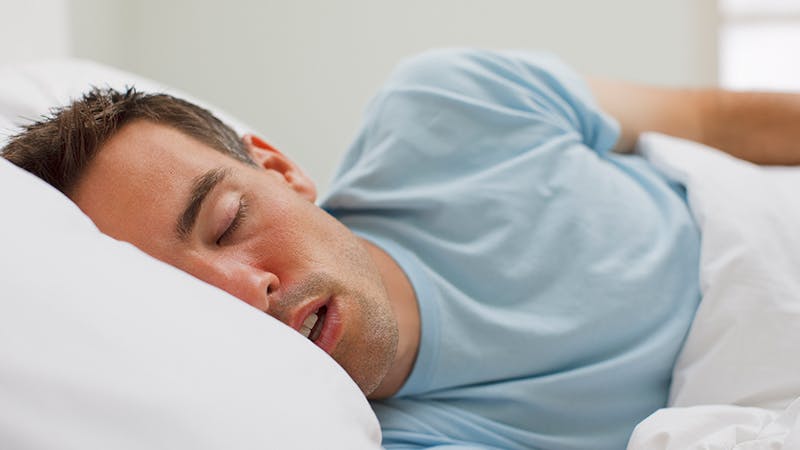
Obstructive sleep apnea (OSA) is a condition in which breathing pauses repeatedly while sleeping. When breathing stops, the person wakes up, typically with a loud snort, and then the breathing resumes. Symptoms of sleep apnea include loud snoring at night and sleepiness during the day.
Are you tired after a full night’s sleep?
People with sleep apnea typically have no problems with breathing while they are awake, but when they sleep, their throats narrow to a degree that they cannot get enough oxygen. A continuous positive airway pressure (CPAP) machine is the most common and reliable sleep apnea treatment. This device, which you wear over your face at night, creates pressure in the air passages to keep the throat open. Oral appliances, supplemental oxygen, and other airflow devices may be recommended in some cases. Surgery may be an option if other treatments have failed.
See us for the highest level of specialty care.
At Texas ENT Specialists (TENTS), we provide the best specialty care for a full range of ear, nose, and throat problems, including sleep apnea. We have treatment centers in 15 locations throughout the greater Houston area. Call us to schedule a consultation if you are experiencing sleep apnea symptoms.
How is sleep apnea diagnosed?
If you have signs and symptoms of sleep apnea, you may need further evaluation. This may involve overnight monitoring of your breathing and bodily functions with special equipment during sleep. Home sleep testing may be an option in some cases. Your doctor may provide you with simplified tests at home to measure your breathing patterns, heat rate, blood oxygen levels, and airflow.
How can you live better with sleep apnea?
Tips for living with sleep apnea include the following:
- Change sleeping positions: Avoid sleeping on your back. If you wake up on your back, roll over onto your side to help keep your throat open.
- Lose weight: Half of the people with OSA are overweight. Losing as little as 20 lbs. can significantly reduce your breathing index (number of sleep disruptions during the night).
- Get regular exercise: A brisk walk every day or another form of regular exercise can not only help you lose weight but also help you sleep better.
- Get more sleep: Avoid caffeine in the afternoon and evening. Go to bed and get up at the same time every day and allow enough time for plenty of sleep.
FAQ about sleep apnea
How common is sleep apnea?
An estimated 2% to 9% of adults in the U.S. have sleep apnea. Most cases are believed to go undiagnosed. Obstructive sleep apnea affects more men than women. It is more common in older adults, but it can occur at any age.
Does sleep apnea increase your risk of a car accident?
Yes, people with untreated sleep apnea have a higher risk of being involved in a collision. You can safely resume driving after one to three weeks of CPAP therapy.
Are there other symptoms of sleep apnea?
Chronic snoring and sleepiness in the daytime are common symptoms of sleep apnea. Other symptoms may include morning headaches, irritability, morning dry mouth or sore throat, limited attention span, and difficulty thinking clearly.

